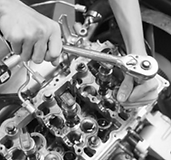Engineering and Technology Quarterly Reviews
ISSN 2622-9374




Published: 15 July 2019
Comparative study of the effect of Lycra on Single Jersey and 1×1 Rib made from 100% Cotton and Cotton/Lycra Yarns
Abul Fazal Mohammad Fahad Halim, Iftay Khairul Alam, Tahmina Akhter
World University of Bangladesh, European University of Bangladesh

Download Full-Text Pdf
10.5281/zenodo.3334515
Pages: 91-100
Keywords: Knitted Fabric, Lycra, Fabric Properties, 1×1 Rib, Shrinkage, Tensile Properties
Abstract
For an end consumer, the most significant factors are performance and comfort after a few aesthetic factors such as appearance and fashion appeal. For stretchable fabric, the fit related comfort lies the inability of the fabric to be stretched and recover when a repeated load is applied due to body movements without any permanent set. Lycra is one of the best yarn to use in a different field. In this study, the dimensional and physical properties of cotton/Lycra single jersey and rib fabrics are investigated in comparison with fabrics knitted from cotton alone. It is apparent that the presence of Lycra shows improved dimensional and physical properties in both knitted fabrics. Furthermore, it was found that Lycra-containing fabrics tended to have tighter structure, higher weight, thickness, bursting strength and elongation, but air permeability, tensile properties, pilling grade, and shrinkage are lower.
References
-
E. Eltahan, “Effect of Lycra Percentages and Loop Length on the Physical and Mechanical Properties of Single Jersey Knitted Fabrics,” Journal of Composites, vol. 2016, pp. 1-7, 2016.
-
E. Sarıoglu and O. Babaarslan, “A comparative strength analysis of denim fabrics made from core-spun yarns containing textured microfilaments,” Journal of Engineered Fibers and Fabrics, vol. 12, no. 1, pp. 22–32, 2017.
-
K. A. Makhlouf S, “Comparison mechanical properties for fabric (woven and knitted) supported by composite material,” Journal of Textile Science Engineering, vol. 05, no. 04, Article ID1000206, pp. 10–4172, 2015.
-
D. Semnani, “Mechanical properties of weft knitted fabrics in fully stretched status long courses direction: geometrical model aspect,” Universal Journal of Mechanical Engineering, vol. 1, no. 2, pp. 62–67, 2013.
-
Z. Jinyun, L. Yi, J. Lam, and C. Xuyong, “The Poisson Ratio and Modulus of Elastic Knitted Fabrics,” Textile Research Journal, vol. 80, no. 18, pp. 1965–1969, 2010.
-
R. D. Mikucioniene and A. Mickeviciene, “The influence of knitting structure on mechanical properties of weft knitted fabrics,” Material Science (Mikucioniene), vol. 16, no.3, 2010.
-
A. N. S. Man, "Dynamic elastic behavior of cotton and cotton/spandex knitted fabrics," Journal of Engineered Fibers and Fabrics, vol. 9, no.1, pp. 93-100, 2014.
-
Prakash C. Established The Effect Of Loop Length On Dimensional Stability Of Single Jersey Knitted Fabric Made From Cotton/Lycra Core Spun Yarn. Indian Journal of Science and Technology 2010; 3:287-289.
-
Dereje Sitotaw, “Effect of Twist Multipliers on Air Permeability of Single Jersey and 1×1 Rib Fabrics,” Journal of Textile and Apparel Technology and Management, vol. 10, no. 1, pp. 5, 2016.
-
D. J. Spencer, Knitting Technology: A comprehensive handbook and practical guide, vol. 105, Abington Hall, Abington, Cambridge CB16AH, Woodhead Publishing Limited, England, 2001.
-
D. B. Sitotaw and B. F. Adamu, “Tensile Properties of Single Jersey and 1×1 Rib Knitted Fabrics made from 100% Cotton and Cotton/Lycra Yarns,” Journal of Engineering, vol 1, no. 1,pp. 3-5, 2017.
